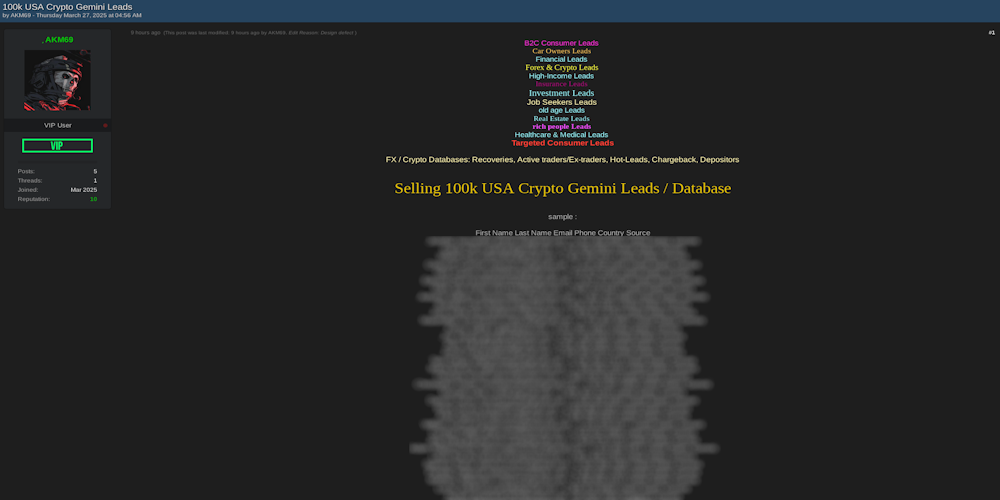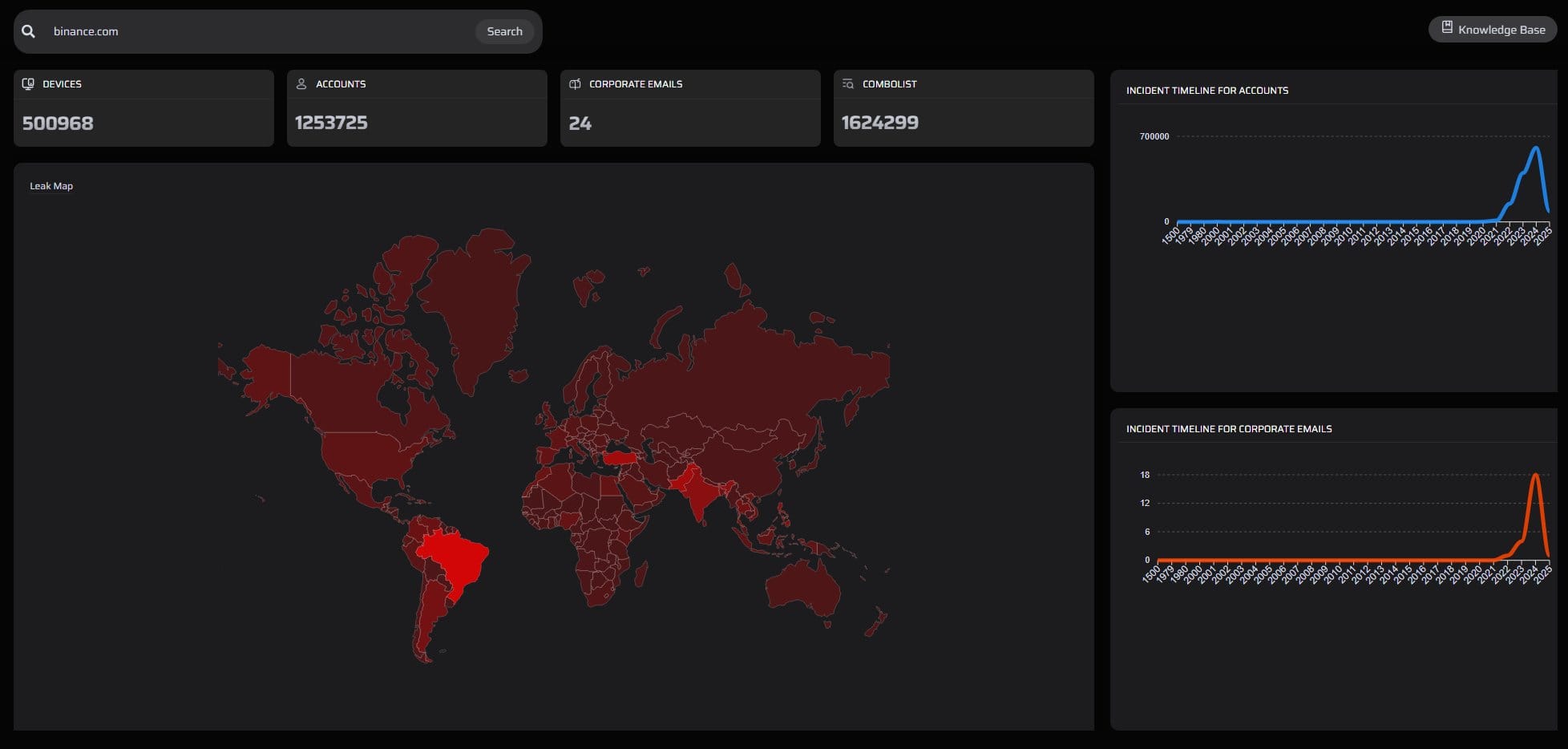Over 100,000 users of the cryptocurrency exchanges Binance and Gemini have become vulnerable due to a serious security breach. The appearance of sensitive personal data for sale on the dark web has triggered serious concerns in the cryptocurrency industry. Full names, email addresses, phone numbers, and location details are among the information exposed, which could increase the risk of fraud and scams.
A user named AKM69 has posted for sale on the dark web a database that allegedly contains information about Gemini users. According to the report by Dark Web Informer, the dataset includes 100,000 records, mainly of US users, but also some from Singapore and the UK. The vendor claims the data may be used for marketing purposes, fraudulent activity or cryptocurrency recovery scams.

The report by Dark Web Informer
It is not yet clear whether the data leak is due to a direct attack or other vulnerabilities.
Suspected Phishing Attacks, Increase Losses in Crypto
On 26 March, prior to the Gemini incident, a dark web user named kiki88888 allegedly offered Binance user data for sale, including login details of over 132.000 accounts. According to Dark Web Informer, the Binance data breach was more likely to be related to phishing attacks rather than a direct penetration of the system. The informant urged users to "stop clicking on suspicious links".
In a post on X (formerly Twitter), he wrote:
"Some of you should really stop clicking on anything. Data courtesy of WhiteIntel."

So far, neither Binance nor Gemini have made any public statements about the data leaks. Phishing attacks against cryptocurrency users are widely documented: in March, social engineering scams caused losses exceeding 46 million dollars for Coinbase users.
Scam Sniffer, a blockchain security company, reported that phishing attacks caused losses exceeding 15 million dollars in the first two months of the year. Users must remain vigilant, avoiding unknown links and protecting their accounts with two-factor authentication (2FA) and hardware wallet.










